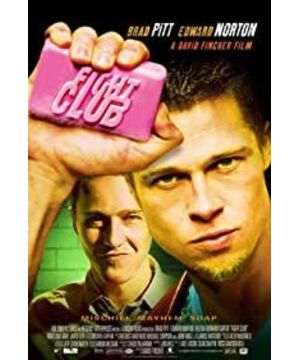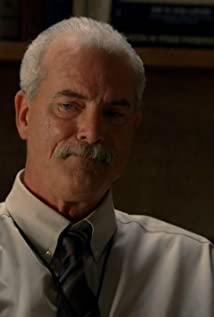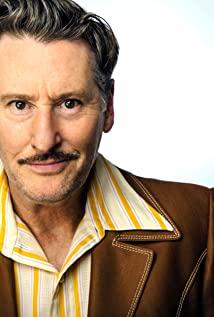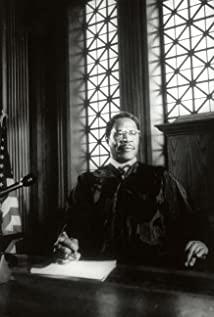In the opening pages, Norton is reading an IKEA brochure, and his well-organized apartment and his supposedly dignified white-collar job symbolize a man tamed by business society. And Brad Pitt, at the end of the film, it is revealed that it is Norton's inner self-incarnation (altered ego), which symbolizes a return to men in the film. Interestingly, though, director David Fincher chose Fight Club, or violence, to symbolize this search for manhood. A group of men find themselves in a fight with each other and become self-respecting. (How come American men are all this age, and they are the same as our teenage hairy kids in China, and they have to find their manly side from violence). Finch attributed the crisis of masculinity to the commercial society, with the utmost irony. The high-grade artificial soap made by Pitt that symbolizes taste is actually made by stealing fat from women after liposuction. Finch seems to be fed up with this tedious modern business society, and the anti-social activities of this group of fight club members have also been infinitely heroized by him (just like those revolutionary heroes who are constantly missed by modern people, they represent an image of rebellion that is desired and irreproducible in modern society).
But Finch does not give us a way out of reflection on business society and modern manhood. All Finch can do in the movie is to finally let Norton, the cowardly struggling man and his inner violent self, watch the financial building that he blew up to the sky in front of his eyes and burn like fireworks. In the raging flames. Despair destroyed the manhood that had been inflated infinitely by violence and resistance to commercial society. He, along with his altered ego, died.
Americans should still be immersed in the imagination of the rough, individualistic, free man of the western cowboy. I personally feel that China's Confucianism and the influence of Buddhism on the construction of Chinese manhood/masculinity are obviously different from this typical Western-style male pioneer image. Chinese men are given and emphasized family responsibility obviously more (so Chinese men are a little more tired, and obviously mature earlier than American men, and have a sense of responsibility. Most American men don’t know what they are doing when they are 30 years old), while That kind of individualistic manhood is also more manifested in the image of half-hermit and half-dissolute men like Li Bai, and rarely evolves into the violent performance in Fight Club.
Of course, the embodiment of Chinese-style masculinity (the emphasis on responsibility adds a little sullenness, although it also emphasizes individualism) has become a prejudice that Asian men are not like men in the eyes of Westerners. The classic joke is that my BF was traveling with a group of black and white brothers. As a result, the video in the car was very rich in mental retardation and prejudice of the American people, laughing at some of the shortcomings of the Asian brother, causing the whole car to look at him. When he came back, he confided to me indignation. Of course I succeeded in firmly refuting this argument with the theories of my gender studies and the results of my American classmates' reports of first-hand experiments with gay men in China and the West. This joke, which cannot be called a joke, once again illustrates some of the different constructions and connotations of Chinese and Western masculinity.
And about what kind of man is a real man, it is estimated that this is a difficult proposition. Of course I can give my definition of a feminist (for example, why can't people be considered real men when they talk about being gay? Are there real men?). Might be more interesting to do a survey. I really want to invite everyone to speak up. Anyway, one of the hottest definitions this time around is, as the Nivea advertisement said, for real men who dare to skin care. Today's advertisers are getting smarter. They are afraid that their products won't sell, so they have to give more confidence to the men who are consuming them. The unconventional femininity of men's skin care turned into a masculine act of individual liberalism against society's established rules in this ad. Have to admire.
I was going to comment on the movie, but it's too far.
View more about Fight Club reviews











